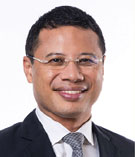FOREWORD

In Singapore’s development story, education has been foundational in transforming both our economy and society. From our earliest days, we understood that education would not just determine our economic success but shape the very essence of our nation. Our pioneers recognised that education needed to do more than cultivate academic excellence; it had to prepare our people to seize opportunities and overcome challenges. This remains vital today, as we navigate an era of unprecedented technological disruption and global uncertainty, where the pace of change continues to accelerate.
Our education landscape has evolved significantly over the decades, in line with how our societal and economic needs have also evolved. We have moved away from a one-size-fits all approach, creating multiple pathways that cater to different strengths and aspirations. Today’s students can shape their learning journeys across academics, arts, sports, and technical fields, allowing them to develop their unique talents and interests. The introduction of Full Subject-Based Banding in secondary schools has been a key shift, replacing streaming with a more flexible system where students take subjects at different levels according to their strengths. This flexibility continues into higher education, with multiple progression pathways between ITE, polytechnic and university. Everyone can choose to progress on their own path at their own pace, based on their circumstances, capabilities and interests.
Education in Singapore goes beyond the imparting of knowledge and skills. Through our schools and institutions, we consciously nurture resilience and social responsibility, helping students understand and appreciate different perspectives while encouraging them to contribute meaningfully to society. Character and Citizenship Education builds students’ values and social-emotional competencies through a blend of classroom learning and student development experiences, such as Values-in-Action projects that serve community needs. Students engage with complex issues, while discovering ways to make positive change. The enhanced 21st Century Competencies framework cultivates adaptive thinking, civic literacy and communication by integrating these capabilities across subjects and activities. These qualities prepare our people for a world where technical skills can quickly become obsolete, but the ability to adapt, learn and contribute remain constant.
Learning must extend throughout life, well beyond the boundaries of formal education. Our schools lay the essential foundation by instilling mindsets and habits necessary for lifelong learning. Through initiatives like SkillsFuture, we create abundant opportunities for Singaporeans to grow at every stage, acquiring new capabilities and pursuing fresh aspirations. Work-Study Programmes combine academic learning with on-the-job training, allowing fresh ITE and Polytechnic graduates to earn recognised qualifications in their chosen fields. The SkillsFuture Career Transition Programme supports mid-career individuals to acquire industry-relevant skills, enabling them to pivot to new sectors and roles. These varied opportunities for continuous learning and skills mastery equips our people to adapt amidst economic changes, keeping Singapore competitive and relevant in an increasingly complex global landscape.
As we look ahead, education remains key to our success, just as it has been since our founding. While tomorrow brings both opportunities and challenges we cannot yet imagine, our strength comes from the combined efforts of many – educators who inspire learning, parents who guide growth, and partners from industry and the community, who provide real-world perspectives. Together, they develop in our people the capabilities, character and values that will drive Singapore forward.
I hope these articles will encourage reflection and inspire fresh thinking about education’s vital role. Just as our pioneers understood the importance of education to shape both individual success and national progress, we must continue building an education system that enables every Singaporean to realise their potential and contribute to our nation’s next chapter.
Minister for Education
Copyright© 2024 World Scientific Publishing Co Pte Ltd • Privacy Policy